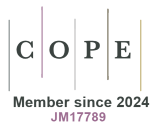Price and reimbursement for orphan medicines and managed entry agreements: does Italy need a framework?
DOI:
https://doi.org/10.33393/grhta.2021.2278Keywords:
Italy, Managed entry agreements, Orphan medicines, Value frameworkAbstract
This article illustrates a consensus opinion of an expert panel on the need and usefulness of a framework for price and reimbursement (P&R) process and managed entry agreements (MEAs) for orphan medicines in Italy.
This opinion was gathered in three rounds: an introductory document was sent to the panel and discussed during a recorded online meeting. A second document was sent to the panel for their review. In the third step the final document was validated. Members of the expert panel are the authors of the article.
The panel agreed that Italy does not need a specific value framework for orphan medicines, driving the P&R process. Rather, a more structured value framework for all medicines tailored to the specific drugs can be useful. For orphan drugs, the panel advocated for a multidisciplinary approach and the contribution of different stakeholders to value assessment, and acknowledged the importance of addressing, more than for other drugs, unmet needs, equity issues and societal value. The panel raised the need of increasing the importance of patient-reported outcomes. Experts, acknowledging the growing criticisms in implementation of outcome-based agreements in Italy, expressed their position against their abandonment in favour of discounts only and supported orphan medicines as natural candidates for these agreements.
Finally, the panel made some recommendations on the appraisal process for orphan medicines, including an early discussion on the uncertainty of the evidence generated and the adoption of a structured approach to identify the agreement, which better responds to the uncertainty.
References
- Annemans L, Aymé S, Le Cam Y, et al. Recommendations from the European Working Group for Value Assessment and Funding Processes in Rare Diseases (ORPH-VAL). Orphanet J Rare Dis. 2017;12(1):50. https://doi.org/10.1186/s13023-017-0601-9 PMID:28283046 DOI: https://doi.org/10.1186/s13023-017-0601-9
- Nicod E, Annemans L, Bucsics A, Lee A, Upadhyaya S, Facey K. HTA programme response to the challenges of dealing with orphan medicinal products: process evaluation in selected European countries. Health Policy. 2019;123(2):140-151. https://doi.org/10.1016/j.healthpol.2017.03.009PMID:28400128 DOI: https://doi.org/10.1016/j.healthpol.2017.03.009
- Nicod E. Why do health technology assessment coverage recommendations for the same drugs differ across settings? Applying a mixed methods framework to systematically compare orphan drug decisions in four European countries. Eur J Health Econ. 2017;18(6):715-730. https://doi.org/10.1007/s10198-016-0823-0 PMID:27538758 DOI: https://doi.org/10.1007/s10198-016-0823-0
- Drummond MF. Challenges in the economic evaluation of orphan drugs. Eurohealth (Lond). 2008;14(2):16-17.
- Hughes-Wilson W, Palma A, Schuurman A, Simoens S. Paying for the Orphan Drug System: break or bend? Is it time for a new evaluation system for payers in Europe to take account of new rare disease treatments? Orphanet J Rare Dis. 2012;7(1):74. https://doi.org/10.1186/1750-1172-7-74 PMID:23013790 DOI: https://doi.org/10.1186/1750-1172-7-74
- Berdud M, Drummond M, Towse A. Establishing a reasonable price for an orphan drug. Cost Eff Resour Alloc. 2020;18(1):31. https://doi.org/10.1186/s12962-020-00223-x PMID:32908456 DOI: https://doi.org/10.1186/s12962-020-00223-x
- Aifa. Linee guida per la compilazione del dossier a supporto della domanda di rimborsabilità e prezzo di un medicinale. Online https://www.aifa.gov.it/-/l-aifa-approva-le-nuove-linee-guida-per-la-contrattazione-dei-prezzi-e-rimborsi-dei-farmaci (Last access, April 2, 2021).
- Galeone C, Bruzzi P, Jommi C. Key drivers of innovativeness appraisal for medicines: the Italian experience after the adoption of the new ranking system. BMJ Open. 2021;11(1):e041259. https://doi.org/10.1136/bmjopen-2020-041259 PMID:33441356 DOI: https://doi.org/10.1136/bmjopen-2020-041259
- Osservatorio Nazionale sull’impiego dei medicinali. L’uso dei farmaci in Italia. Rapporto Nazionale Anno 2019. Roma: Agenzia Italiana del Farmaco; 2020. https://www.aifa.gov.it/-/rapporto-osmed-2019 Accessed June 202
- Dabbous M, Chachoua L, Caban A, Toumi M. Managed Entry Agreements: Policy Analysis From the European Perspective. Value Health. 2020;23(4):425-433. https://doi.org/10.1016/j.jval.2019.12.008 PMID:32327159 DOI: https://doi.org/10.1016/j.jval.2019.12.008
- Wenzl, M. and S. Chapman (2019), "Performance-based managed entry agreements for new medicines in OECD countries and EU member states: How they work and possible improvements going forward", OECD Health Working Papers, No. 115. 2019. Paris, OECD Publishing. https://doi.org/10.1787/6e5e4c0f-en. (Last access, April 2, 2021) DOI: https://doi.org/10.1787/6e5e4c0f-en
- Morel T, Arickx F, Befrits G, et al. Reconciling uncertainty of costs and outcomes with the need for access to orphan medicinal products: a comparative study of managed entry agreements across seven European countries. Orphanet J Rare Dis. 2013;8(1):198. https://doi.org/10.1186/1750-1172-8-198 PMID:24365263 DOI: https://doi.org/10.1186/1750-1172-8-198
- Toumi M, Zard J, Abdallah IB, et al. An Overview of Market Access Agreements. In: Ethgen O, Staginnus U, eds. The Future of Health Economics. London: Routledge; 2016.
- Neyt M, Gerkens S, San Miguel L, Vinck I, Thiry N, Cleemput I. An evaluation of managed entry agreements in Belgium: A system with threats and (high) potential if properly applied. Health Policy. 2020;124(9):959-964. https://doi.org/10.1016/j.healthpol.2020.06.007PMID:32616313 DOI: https://doi.org/10.1016/j.healthpol.2020.06.007
- Andersson E, Svensson J, Persson U, Lindgren P. Risk sharing in managed entry agreements-A review of the Swedish experience. Health Policy. 2020;124(4):404-410. https://doi.org/10.1016/j.healthpol.2020.02.002 PMID:32093981 DOI: https://doi.org/10.1016/j.healthpol.2020.02.002
- Makady A, van Veelen A, de Boer A, Hillege H, Klungel OH, Goettsch W. Implementing managed entry agreements in practice: the Dutch reality check. Health Policy. 2019;123(3):267-274. https://doi.org/10.1016/j.healthpol.2018.09.016 PMID:30316540 DOI: https://doi.org/10.1016/j.healthpol.2018.09.016
- Jommi C. Managed Entry Agreements and High Cost Medicines (European Perspective). In: Babar Z-U-D, ed. Equitable Access to High-Cost Pharmaceuticals. London: Springer; 2018. https://doi.org/10.1016/B978-0-12-811945-7.00004-X DOI: https://doi.org/10.1016/B978-0-12-811945-7.00004-X
- Gamba S, Pertile P, Vogler S. The impact of managed entry agreements on pharmaceutical prices. Health Econ. 2020;29(S1)(suppl 1):47-62. https://doi.org/10.1002/hec.4112PMID:32628324 DOI: https://doi.org/10.1002/hec.4112
- Lohr S. Sampling: Design and Analysis. 2nd ed. Boston, MA: Brooks/Cole; 2010.
- Jayasundara K, Hollis A, Krahn M, Mamdani M, Hoch JS, Grootendorst P. Estimating the clinical cost of drug development for orphan versus non-orphan drugs. Orphanet J Rare Dis. 2019;14(1):12. https://doi.org/10.1186/s13023-018-0990-4 PMID:30630499 DOI: https://doi.org/10.1186/s13023-018-0990-4
- Facey K, Xoxi E, Kent E et al. WP10 Guidance to support consistent HTA appraisal for orphan medicinal products. D10.3 Guidance on use and implementation of outcome-based managed entry agreements for orphan medicinal products (Rare Disease Treatments) 12 May 2021 https://www.impact-hta.eu/work-package-10 Accessed July 5, 2021. DOI: https://doi.org/10.3389/fphar.2021.699466










